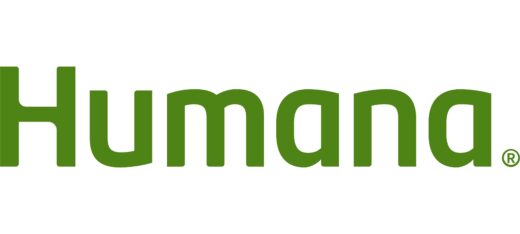
Written by Karin Klein
Reviewed by Elaine Wong Eakin
We aim to help you make informed healthcare decisions. While this post may contain links to lead generation forms, this won’t influence our writing. We follow strict editorial standards to give you the most accurate and unbiased information.
Medicare Part B? Medigap Plan B?
One of the first things to take note of as you approach Medicare eligibility is the confusing fact that Part B and Plan B are two different things. Part B is part of what’s called Original Medicare, along with Part A. Plan B refers to Medicare supplement insurance commonly called Medigap.
Part A covers hospital bills and Part B, for which a standard premium is paid, covers outpatient care, medical equipment, and other services.
But there are many other expenses that Original Medicare doesn’t cover, and this is where Medicare Supplement (or Medigap) plans come in. These health care policies are available from various private providers. There are 10 different kinds of Medigap policies, all of them lettered A, B, C, D, F, G, K, L, M, or N. Two of them – the ones providing the most coverage, C and F – no longer are available to people who became eligible for Medicare starting January 1, 2020. Only people who were eligible before January 1, 2020, can buy one of these policies. However, the other plans, including Plan B, are among the Medigap policies from which you can choose if you became eligible for Medicare as of January 1, 2020.
It’s a complicated new world to navigate, but knowing what kinds of health coverage is available to you will help you make an informed decision.
Compare options HERE & start your health plan journey.
What Does Medicare Supplement Plan B cover?
According to the U.S. government website on Medicare, Medicare Supplement Plan B coverage includes:
- Part A coinsurance and hospital costs up to an additional 365 days after Medicare benefits are used up.
- Part B coinsurance and copayment.
- The first three pints of transfused blood.
- Part A hospice care coinsurance or copayment.
- Part A deductible.
Keep in mind that all Medicare Supplement Plan B policies cover the same expenses no matter which company’s plan you choose. The same is true of all the Medigap policies: Those within the same letter cover the same expenses.
What Does Plan B Not Cover?
So, what isn’t covered by Medicare Supplement Plan B?
It does not cover the Part B annual deductible or Part B excess charges, skilled nursing facility stays or emergency healthcare during foreign travel. That doesn’t mean you are without some coverage for a skilled nursing facility stay if you choose a Plan B policy. Original Medicare pays for up to 100 days in such a facility for each benefit period, according to the U.S. government website for Medicare. For the first 20 days you pay no money; for days 21-100, you pay coinsurance of $176 a day. Medigap policies with skilled nursing facility coverage would pay that coinsurance, but Plan B policies will not.
There are various health expenses that no Medigap policies pay because Original Medicare does not cover them. According to AARP, those include:
- Dental care
- Routine vision care
- Hearing aids
- Eyeglasses
What Does Plan B Cost?
The cost of Medigap policies can vary significantly depending on which company is selling the policy. Coverage in some states is more expensive than in others. Even within a state, Medigap premiums can vary depending on the region.
Some companies offer discounts for women, non-smokers or married couples; for those who pay yearly discounts, for using electronic funds transfer or discounts for multiple policies.
Is Plan B Right for You?
Medicare Supplement Plan B may or may not be the right fit for you. Perhaps you travel overseas often and want emergency coverage. Or you might feel that fuller skilled nursing coverage would be a prudent thing to have for the future. Or you could pick Medicare Supplement Plan A, which has less comprehensive coverage.
What Are Alternatives to Medigap?
You also could think about Medicare Advantage plans, which are not Medigap policies. With this coverage, a private provider contracts with the government to cover the usual Part A and Part B services, but also often covers additional services such as prescription drugs and vision care. Some even cover such services as transportation to the doctor’s office. The prices often are very competitive. But these plans might require you to receive care within a network of providers if the Medicare Advantage plan is an HMO. If the Medicare Advantage plan is a PPO, you may see providers outside the network but you pay more.
Shop for a Medicare plan with additional benefits!
What If You Live in Massachusetts, Minnesota or Wisconsin?
An important note for residents of Massachusetts, Minnesota and Wisconsin: These states have their own ways of organizing Medigap coverage, so be sure to check their websites separately if you live in one of them. In Massachusetts, for example, three standard Medigap policies are available.
How Do You Enroll in Medicare Supplement Plan B?
The best time to buy a Plan B health policy without worrying about being rejected for coverage is during the six-month open-enrollment period starting with your Medicare Part B effective date. Your coverage can’t be canceled as long as you keep up your premium payments. This is true of all Medigap policies.
Companies do not have to offer every Medigap supplement plan, so it might take some shopping around to find a Plan B policy, if that’s what you choose. In addition, remember that you still would not be covered for prescription drugs, which would require purchasing a Medicare Part D plan. Again, a confusing detail: Medigap Plan D policies, which offer robust supplemental coverage, are different from Medicare Part D prescription coverage.
Thank you for your feedback!
Medicare.gov. “What Part B Covers.” Medicare. Accessed June 12, 2024. https://www.medicare.gov/what-medicare-covers/what-part-b-covers.
Medicare.gov. “Compare Plan Benefits.” Medicare. Accessed June 12, 2024. https://www.medicare.gov/health-drug-plans/medigap/basics/compare-plan-benefits.
Medicare.gov. “Skilled Nursing Facility (SNF) Care.” Medicare. Accessed June 12, 2024. https://www.medicare.gov/coverage/skilled-nursing-facility-snf-care.
AARP. “Services Not Covered by Medicare.” AARP. Accessed June 12, 2024. https://www.aarp.org/health/medicare-insurance/info-2018/services-not-covered.html.
Medicare.gov. “Compare Plan Benefits in Massachusetts.” Medicare. Accessed June 12, 2024. https://www.medicare.gov/health-drug-plans/medigap/basics/compare-plan-benefits/massachusetts


 by
Elaine Wong Eakin |
Updated on
August 29, 2025
by
Elaine Wong Eakin |
Updated on
August 29, 2025 





